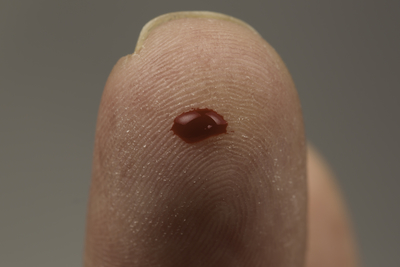
A diagnosis of cancer often involves a type of surgery, an invasive biopsy procedure. That may not be the case for long.
Researchers at the Johns Hopkins Kimmel Cancer Center have developed a new method that is able its ability to diagnose patients even in early stages of cancer. Their method looks at genetic material, DNA, released from cancer cells. Their method, called Targeted Error Correction Sequencing (TEC-Seq), is both sensitive (able to find tiny amounts of DNA) and specific (it only identifies cancer DNA). In a group of 200 patients tested, more than half of early stage (stage I and II) colorectal, breast, lung and ovarian cancer patients were diagnosed accurately using TEC-Seq.
Although noninvasive blood biopsy methods still require validation through large studies, genetic tools such as TEC-Seq may allow for early intervention and treatment of cancer, reducing cancer related illness and death in the future.
